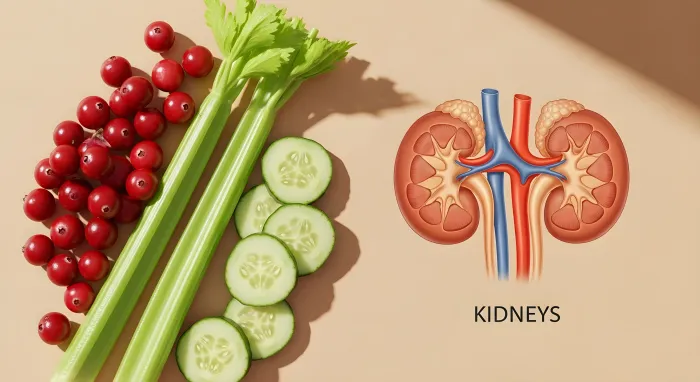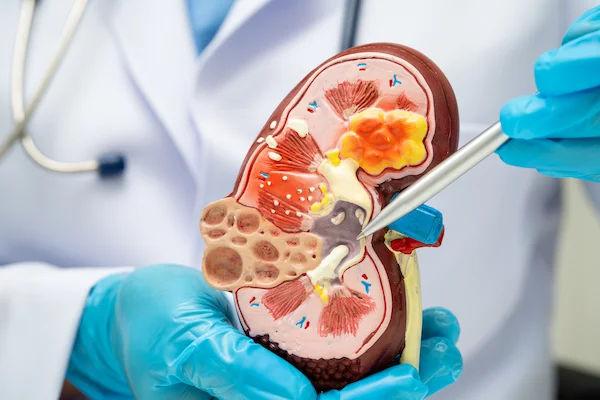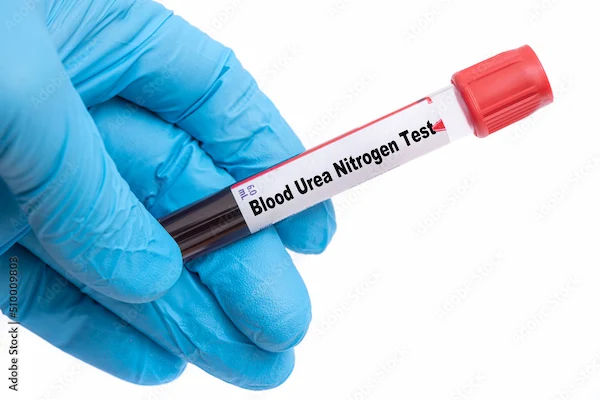Kidney Stone Diet: What to Eat and Avoid
Kidney stones can be excruciating, but the right diet can dramatically reduce your risk of recurrence. This complete UK-focused guide explains what to eat, what to avoid, hydration strategies, and how to tailor your nutrition to your specific stone type. Learn practical, medically supported steps to prevent stones and protect long-term kidney health.

Written by Dr. Siri Nallapu
Reviewed by Dr. Rohinipriyanka Pondugula MBBS
Last updated on 13th Jan, 2026

Introduction
If you’ve had kidney stones, you know how painful they can be—and how motivated you are to prevent the next one. The good news is that the right diet and daily habits can reduce your risk dramatically. In this guide, we explain how stones form and what to eat and drink to stop them. You’ll learn hydration tactics, foods that help you, foods that increase risk, and how to tailor a kidney stone diet plan to your specific stone type. We also break down supplements, sugar, oxalates, and popular myths—plus simple menus you can start this week. Whether you’ve had calcium oxalate stones, uric acid stones, or you’re still waiting for results, you’ll find clear, actionable guidance supported by global kidney health recommendations.
If stones have recurred or symptoms continue, we’ll guide you on when to test and how a 24-hour urine analysis can personalise your plan. If needed, you can consult a doctor online with Apollo24|7 for tailored support. Today is the perfect day to take charge of your kidney health through smarter eating and hydration.Consult a Top Nephrologist for Personalised Advice
Kidney Stones — Why Diet Matters
Quick takeaway: Kidney stones form when urine becomes too concentrated with minerals—diet directly influences this balance.
Kidney stones develop when substances such as calcium, oxalate, uric acid, or cystine build up and crystallise in the kidneys. Low urine volume—usually from inadequate hydration—is the most common trigger. Diet, climate, and health conditions can all increase stone-forming minerals in urine. Roughly 1 in 10 people will develop a stone during their life, and once you’ve had one, recurrence is more likely unless changes are made.
About 80% of stones are calcium-based, particularly calcium oxalate stones. Others include:
• Uric acid stones — linked to acidic urine and high uric acid
• Struvite stones — linked to urinary infections
• Cystine stones — a rare genetic condition
Interestingly, eating too little calcium increases risk because calcium in the gut binds oxalate and helps remove it through the stools rather than the urine.
Three major dietary factors influence risk for most stone types:
• Hydration: The number one protective strategy — aim for well-diluted urine
• Sodium (salt): Increases urinary calcium
• Excess animal protein: Lowers urinary citrate (a natural stone inhibitor) and raises uric acid
Citrate—found in fruits and vegetables, especially citrus—helps stop crystals from growing. Diets rich in plant foods and low-fat dairy, like the DASH diet, are linked with fewer stones.
Unique insight: People who sweat a lot (hot climate workers, athletes) may think they drink “enough”, but still under-hydrate. A scheduled fluid plan is often necessary for prevention. We cover this next.
H2: Hydration Strategy — The Most Important Habit
Quick takeaway: Producing 2–2.5 litres of urine daily prevents the concentration of stone-forming minerals.
Aim for 2.5–3 litres of fluid intake per day, increasing if you live in a hot region, exercise, or have an active job. Pale-yellow urine is your best visual indicator.
Best beverages:
• Water — the main priority
• Lemon or lime water — boosts urine citrate, a powerful stone inhibitor
• Milk/fortified plant milks — supply calcium that binds oxalate in meals
Be careful with:
• Sugary soft drinks and energy drinks — increase risk
• Grapefruit juice — mixed evidence; safer in moderation
• Alcohol — dehydrates
• Spinach-heavy smoothies — extremely high oxalate
Hydration for active lifestyles and hot climates:
• Drink 300–500 ml before exertion
• Sip 150–250 ml every 15–20 minutes during activity
• Replace fluids afterwards with 500–750 ml plus electrolytes if sweating heavily (unless medically restricted)
A timed water bottle (1 litre with marked intervals) is an invaluable tool.
Unique insight: Choose drinks based on your stone chemistry — e.g., uric acid stone formers benefit from alkaline mineral waters. A 24-hour urine test reveals personalised hydration needs, improving success.
Calcium and Oxalate — A Smart Balance
Quick takeaway: Do not cut calcium — eat enough and pair it with oxalate-containing foods to reduce absorption.
Calcium oxalate stones are most common. Many people mistakenly avoid calcium, but 1,000–1,200 mg/day from food is essential because calcium binds oxalate in the gut.
Foods high in oxalate (moderate, don’t eliminate):
• Spinach, beetroot
• Almonds, cashews, peanuts
• Sesame seeds, tahini
• Soy products (varying levels)
• Dark chocolate
• Wheat bran
Lower-oxalate alternatives:
• Cabbage, cauliflower, peas, lentils
• Apples, bananas, grapes
• Rice, oats
Food pairing strategies:
• Spinach curry + yoghurt
• Nuts + milk
• Dal + curd (yoghurt)
• Dark chocolate + a glass of milk
Cooking to reduce oxalate:
• Boil and discard cooking water for high-oxalate veg
• Rinse soaked legumes before cooking
• Rotate greens — avoid daily spinach habits
Calcium supplements:
Only if dietary intake is insufficient — and always with meals. Taking supplements without food can increase stone risk in some people.
Unique insight: Small shifts like swapping spinach for lettuce 3–4 days per week significantly cut oxalate load without changing the cuisine you love.
Great — continuing exactly as structured. ✅
Here is Part 2 of your fully enhanced Kidney Stone Diet Guide.
Salt and Animal Protein — Two Hidden Stone Triggers
Quick takeaway: Too much salt and animal protein increase urinary calcium and uric acid, promoting stones.
Why salt matters
High sodium reduces calcium reabsorption in the kidneys → more calcium spills into urine → stones form more easily.
Target sodium intake:
✔ Less than 2,300 mg/day (≈ 6 g salt or 1 teaspoon)
✔ If you’ve had stones before, aim lower: 1,500 mg/day
Practical swaps to reduce salt
High-Salt Foods | Healthier Alternatives |
Pickles, papads | Fresh vegetables, yoghurt |
Packet soups + noodles | Homemade broth soups |
Restaurant meals | Home-cooked meals with herbs |
Processed meats | Fresh poultry or beans |
Chips, namkeen, salted nuts | Unsalted nuts, roasted seeds |
Why animal protein increases risk
Excess non-vegetarian protein:
• Raises uric acid
• Lowers citrate (stone-preventing chemical)
• Increases calcium release into urine
Limit large portions of:
• Red meat (mutton, beef)
• Organ meats
• Shellfish
• Chicken in excess
• Eggs (especially multiple daily)
Better protein choices:
• Low-fat dairy
• Paneer, curd, milk
• Tofu and soy-based products (moderation for oxalate)
• Dals, pulses, beans, chickpeas
Try vegetarian protein several times per week — good for kidneys and heart.
Fruits, Vegetables & Citrate — Natural Stone Blockers
Quick takeaway: Citrus fruits raise urine citrate, reducing crystal formation.
Citrate binds calcium in urine → keeps calcium oxalate crystals from growing.
Excellent citrate sources:
• Lemon and lime
• Oranges, mandarins
• Musk melon, watermelon
• Coconut water (hydration boost)
Daily target:
120–240 ml lemon or lime juice diluted in water
(≈ Juice of 1–2 lemons)
Other kidney-friendly produce
• Apples, pears, grapes, papaya
• Capsicum, cucumber, pumpkin
• Carrots, green beans
• Tomatoes — safe in moderation
More fruits and vegetables → More alkaline urine → Fewer stones.
Unique insight: Daily citrus intake is as effective as some prescribed citrate supplements for many patients.
Sugar, Soda & Processed Foods — Reduce These Strong Risks
Quick takeaway: Sugary drinks and processed foods increase stone-forming chemicals in urine.
High sugar intake increases insulin spikes → raises calcium and uric acid in urine.
Limit or avoid:
• Soft drinks, fizzy colas
• Added sugar in tea/coffee
• Packaged desserts, pastries
• Sweetened juices
• Energy drinks
Fructose especially increases uric acid → uric acid stones.
Special caution:
Colas contain phosphoric acid, linked to higher kidney stone risk.
Are Supplements Safe? — Be Selective
Quick takeaway: Supplements can help or harm depending on need and timing.
Beneficial when used appropriately:
• Calcium supplements — only with meals if dietary calcium is low
• Vitamin D — only if tested and deficient
• Magnesium — may reduce stone risk in selected individuals
Use caution with:
• Vitamin C (ascorbic acid): >500 mg/day may convert to oxalate → avoid high doses
• High-dose turmeric/oxalate-rich extracts: limit if prone to calcium oxalate stones
Important: Never self-prescribe supplements after a stone — get labs reviewed by a clinician.
If unsure, book a review with an expert via Apollo 24|7.
Meal Planning — Practical Daily Menus
Kidney-friendly eating is normal eating with smart swaps and balance.
Below are sample menus that align with kidney stone prevention guidance (especially for calcium oxalate stones).
Sample Daily Meal Plan
Breakfast
• Vegetable upma OR oats with milk
• Fruit: apple or papaya
• Lemon water or coconut water
Lunch
• 2–3 chapatis or small portion of rice
• Dal or beans
• Mixed vegetables (low-oxalate)
• Curd (small bowl)
Snack
• Roasted chana, fruit, or a boiled egg
• Herbal tea or infused water
Dinner
• Grilled chicken/tofu/paneer
• Soup or steamed veg
• Citrus drink after meals
Hydration plan across the day
• 500 ml after waking
• 300 ml with each meal
• 200 ml between meals
• 250–300 ml before exercise
• 500 ml after exercise
✔ Urine should remain pale yellow throughout the day
Eating Out or Social Meals — Smart Navigation
Quick takeaway: You can maintain a kidney-safe diet anywhere with small choices.
Tips:
• Ask for less salt in restaurant meals
• Avoid gravies (often high sodium)
• Choose grilled/roasted instead of deep-fried
• Skip colas — choose water or fresh lime
• Balance heavy meals with extra water later
Pro tip: Order a side of lemon wedges — add to water for citrate support.
Perfect — I’ll deliver Part 3 now with the same structure and quality.
Kidney Stone Diet
Diet Changes for Each Stone Type — Personalised Nutrition
Quick takeaway: Your diet should match the stone composition to be fully effective.
Different stones form for different reasons — so dietary focus must shift accordingly.
Calcium Oxalate Stones (most common)
Focus on:
• Adequate calcium with meals
• Hydration > 2.5 L/day
• Moderate oxalate intake (not elimination)
• Lower sodium and animal protein
Foods to prioritise
• Dairy: curd, milk, paneer (moderation)
• Lemon/lime water daily
• Low-oxalate veg: cabbage, cucumber, pumpkin, cauliflower, onions
Limit
• Spinach, beetroot, nuts, cocoa, peanuts, almonds
• Excess turmeric powder
• Black tea > 2–3 cups/day
Pair high-oxalate foods with calcium sources to minimise absorption
Example: Spinach + curd together is better than spinach alone.
Uric Acid Stones
Focus on:
• Strong reduction in purine-rich animal proteins
• Increase vegetables and alkaline foods
• Maintain healthy weight
Foods to avoid/limit
• Red meat, organ meats, shellfish
• Alcohol (especially beer)
• Sugary beverages
Helpful foods
• Lemon water, oranges
• Low-fat dairy
• More vegetables and fibre
Those with high uric acid should get levels checked regularly — Apollo 24|7 offers home sample collection.
Struvite Stones
(Usually caused by urinary infections)
Primary focus
• Treat and prevent UTIs
• Higher hydration, medical antibiotics as prescribed
Diet has less impact — medical therapy is key.
Cystine Stones (rare genetic condition)
Focus
• Very high hydration (often > 3–4 L/day)
• Alkaline urine diet
• Possible prescribed medication
Medical supervision is essential.
When to Get Tests — Medical Evaluation Matters
Quick takeaway: Testing identifies why stones form, so treatment can be targeted.
Key investigations your doctor may order:
• Urine routine test
• Kidney function test
• Serum calcium, uric acid
• 24-hour urine analysis (gold standard for stone risk)
• Stone analysis (if a stone has been passed or removed)
Your clinician may adjust your:
• Fluid goals
• Sodium and protein limits
• Calcium and vitamin D intake
If you need lab tests or follow-ups, Apollo 24|7 provides home sample collection and access to specialists online or in person.
Myths vs Facts — Clear the Confusion
Quick takeaway: Many common beliefs about kidney stones are inaccurate.
Myth | Fact |
“Avoid calcium if you have stones.” | False — Low calcium increases oxalate absorption; controlled intake protects the kidneys. |
“Only non-vegetarians get stones.” | Vegetarians with high oxalate or low calcium also form stones. |
“Beer flushes out stones.” | Alcohol worsens dehydration → more stones. |
“Once treated, stones won’t return.” | Recurrence risk is 50% within 5 years without prevention. |
Smart diet and hydration can drastically lower recurrence.
Lifestyle Support — Beyond Diet
Quick takeaway: Daily habits influence urine chemistry and kidney function.
Maintain a healthy weight
Excess body fat increases insulin resistance → changes urine pH → more stones.
Exercise consistently
• 30 minutes walking most days
• Helps maintain weight, stress, and metabolic health
• But avoid dehydration — drink before and after exercise
Limit stress
Stress affects hormones → alters urinary calcium and uric acid
Try:
• Yoga
• Breathing exercises
• Evening relaxation routine
Warning Signs That Need Medical Care
Quick takeaway: Severe pain or infection requires urgent treatment.
Seek medical help immediately if:
• Intense, sudden flank or lower abdomen pain
• Blood in urine
• Fever with chills (dangerous infection)
• Vomiting with inability to keep liquids down
• Difficulty passing urine
Apollo 24|7 enables quick doctor consultation if you notice any of these symptoms.
Conclusion
Kidney stones form when certain minerals build up in the urine — but the right choices can keep your kidneys protected for life. Hydration, balanced dietary calcium, controlled salt and animal proteins, and personalised nutrition based on stone type are the cornerstones of protection.
Small changes such as adding lemon water, reducing packaged foods, and pairing high-oxalate vegetables with calcium can drastically lower your risk of recurrence. Exercise, stress control, and regular medical follow-ups further strengthen your prevention plan.
If symptoms persist, pain recurs, or you are unsure about supplements and testing, book a visit with a kidney specialist via Apollo 24|7 for timely evaluation and stone-specific guidance. Prevention is always easier — and less painful — than treatment.Consult a Top Nephrologist for Personalised Advice
Consult a Top Nephrologist for Personalised Advice

Dr. Manju Kamal
Nephrologist
12 Years • MBBS,MD(General Medicine), DNB,DM(Nephrology)
Angamaly
Apollo Hospitals Karukutty, Angamaly

Dr. Boddanapu Mastan Valli
Nephrologist
9 Years • M.D, D.M.
Nellore
Apollo Speciality Hospitals, Nellore
Dr. Nithyashree Nandagopal
Nephrologist
10 Years • DNB (Gen Med), DNB (Nephrology)
Chennai
Apollo Hospitals Greams Road, Chennai
(275+ Patients)

Dr. Pardha Saradhi
Nephrologist
9 Years • MBBS, MD-DNB (Gen. Med.), DNB (Nephro)
Hyderabad
Apollo Hospitals D R D O kanchanbagh, Hyderabad
(75+ Patients)

Dr. Kity Sarkar
Nephrologist
15 Years • MBBS,MD(Genl. Med.), DrNB(NEPHROLOGY)
Kolkata
Dr. Kity Sarkar's Clinic, Kolkata
Consult a Top Nephrologist for Personalised Advice

Dr. Manju Kamal
Nephrologist
12 Years • MBBS,MD(General Medicine), DNB,DM(Nephrology)
Angamaly
Apollo Hospitals Karukutty, Angamaly

Dr. Boddanapu Mastan Valli
Nephrologist
9 Years • M.D, D.M.
Nellore
Apollo Speciality Hospitals, Nellore
Dr. Nithyashree Nandagopal
Nephrologist
10 Years • DNB (Gen Med), DNB (Nephrology)
Chennai
Apollo Hospitals Greams Road, Chennai
(275+ Patients)

Dr. Pardha Saradhi
Nephrologist
9 Years • MBBS, MD-DNB (Gen. Med.), DNB (Nephro)
Hyderabad
Apollo Hospitals D R D O kanchanbagh, Hyderabad
(75+ Patients)

Dr. Kity Sarkar
Nephrologist
15 Years • MBBS,MD(Genl. Med.), DrNB(NEPHROLOGY)
Kolkata
Dr. Kity Sarkar's Clinic, Kolkata
More articles from Diet for Kidney Disease
Frequently Asked Questions
1️. Which fruit is best for kidney stones?
Citrus fruits like lemon, lime, and orange increase urine citrate, which prevents stones.
2️. Does drinking milk cause kidney stones?
No. Adequate calcium with meals actually reduces calcium oxalate stone formation.
3️. Can I drink coconut water if I have stones?
Yes — it supports hydration and may help reduce crystal formation.
4️. How much water should I drink daily?
Aim for 2–3 litres daily, more in hot weather or if active. Pale yellow urine is the best marker.
5️. Can stones come back?
Yes — recurrence is common. Diet and lifestyle adherence significantly reduce this risk.
.webp)

